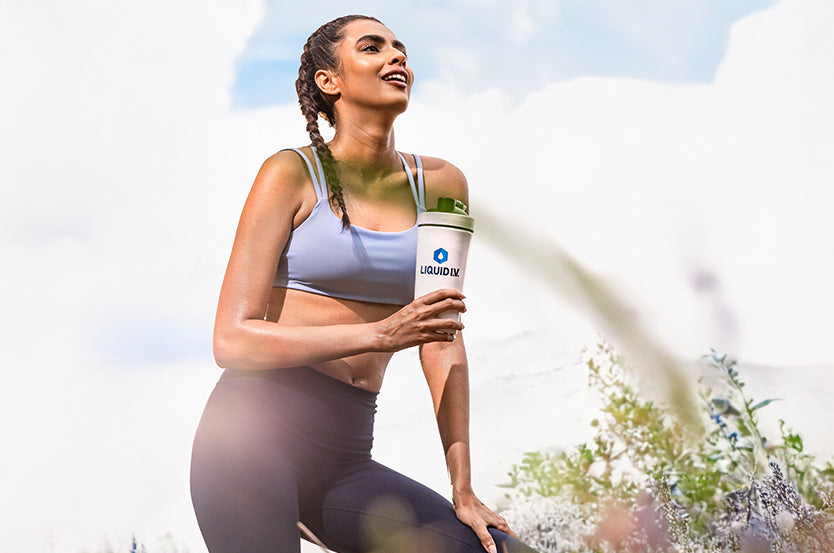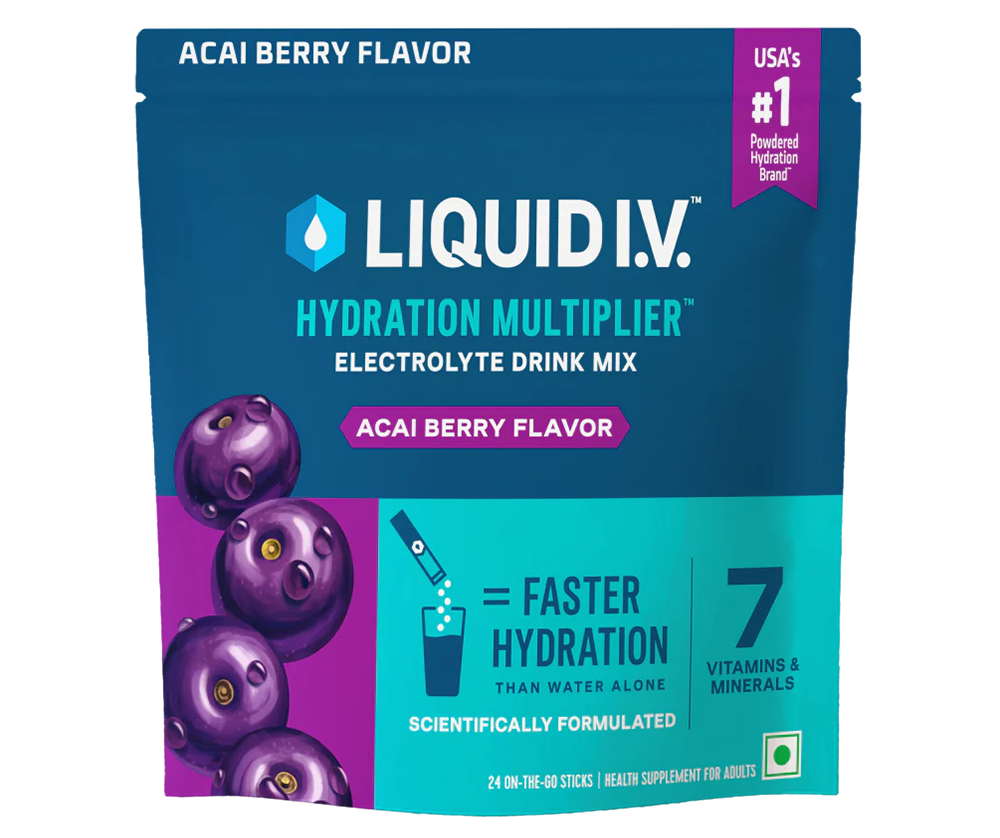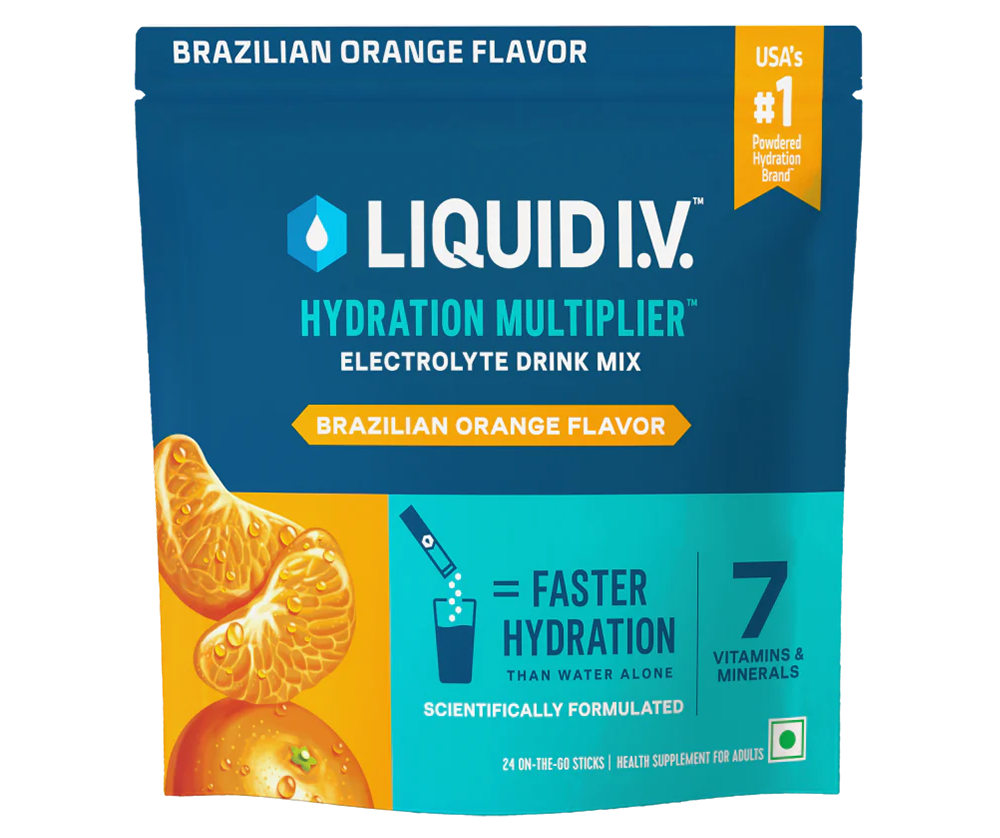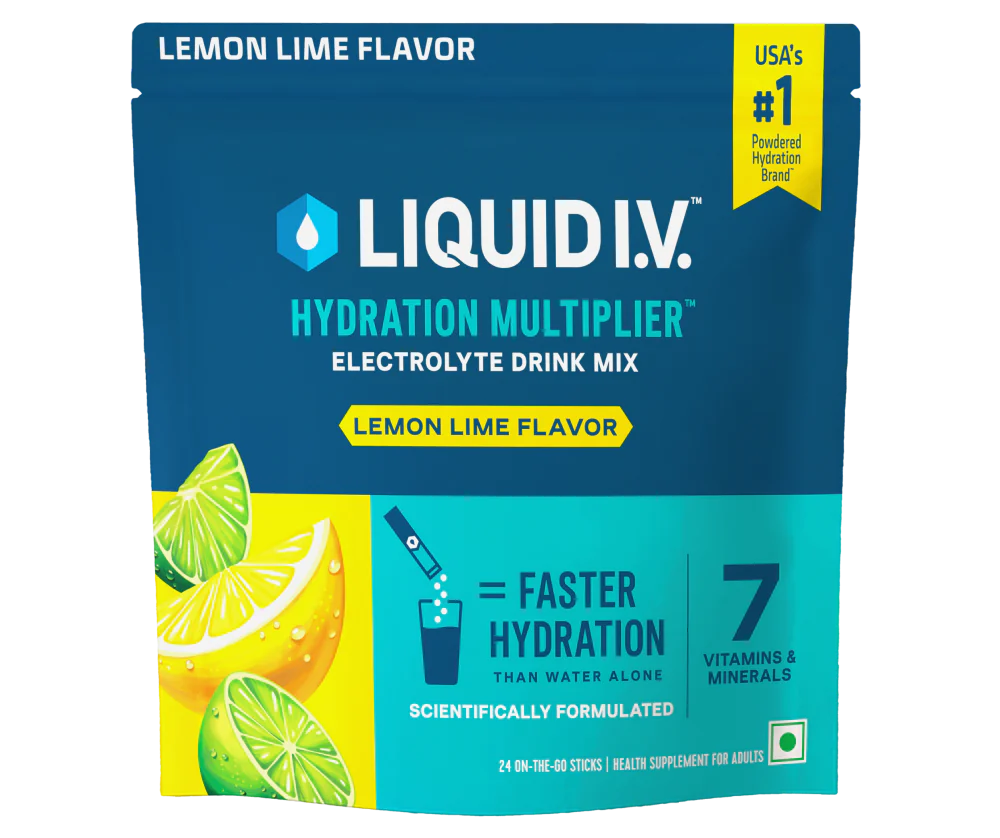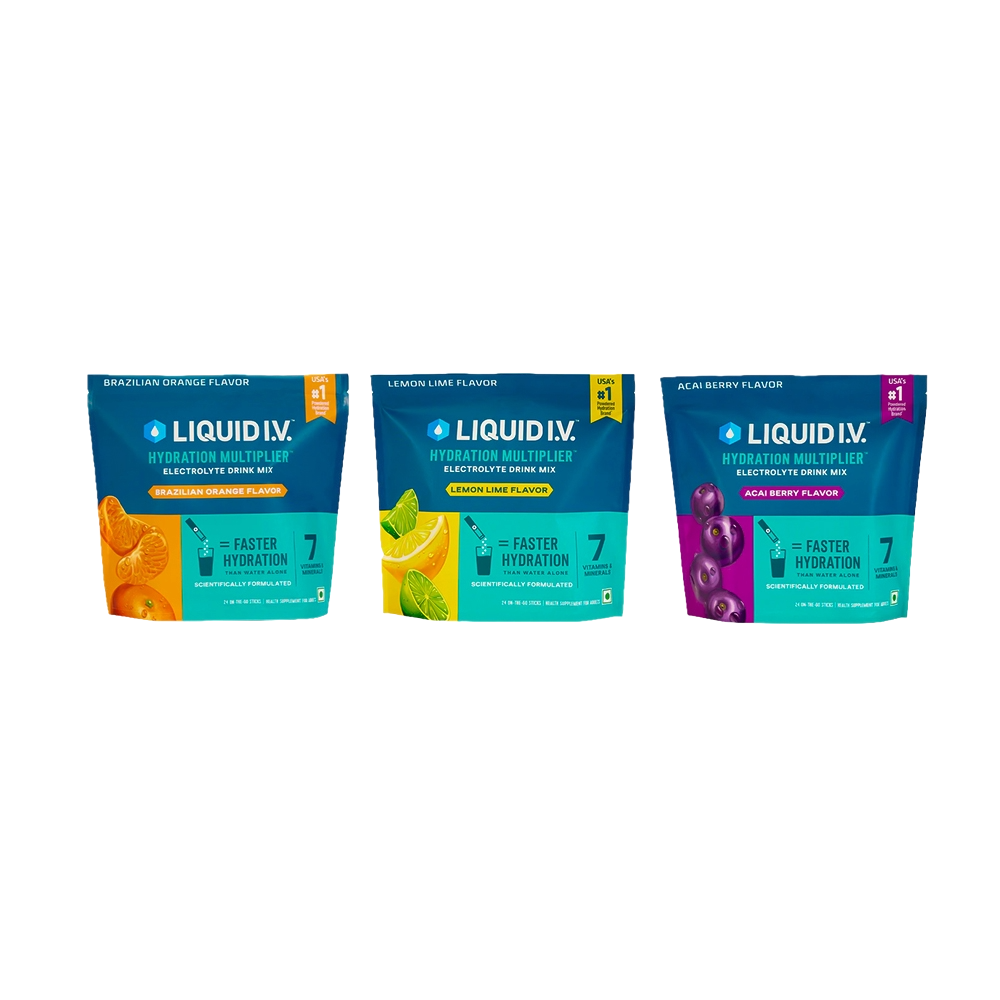Staying Balanced: Your Guide to Electrolytes when Fasting
Fasting is totally trending right now and it's all about that a lifestyle glow up People are loving it for weight management and overall wellness vibes. (1) But hey, while most fasting routines focus on cutting calories and tweaking how your body handles food, don't ignore the electrolytes. They’re key players in keeping your body functions on point. While you are cutting down the calories - you might be unknowingly cutting down on the electrolytes too. This can mess with your body functions big time! This guide is here to spill the tea on electrolytes during fasting and why hydration is a must.
Do You Need Electrolytes While Fasting?
When you fast, your nutrients and fluid intake naturally drop, which can lower your electrolyte levels. If you are new to fasting, or doing a workout while fasting, you run the risk of dehydration and electrolyte imbalance. This can lead headaches, fatigue, weakness and even muscle soreness. (2) Longer fasts (24+ hours) are especially risky for electrolyte depletion.
Do Electrolytes Break a Fast?
A big question for fasters is whether electrolytes mess up the benefits. Generally, pure electrolytes without calories, sugar, or major additives don’t break a fast. Drinks like black coffee, green tea, and sugar-free options usually don’t spike insulin, which is crucial for maintaining the fasting state. The goal is to keep calories low, boost fat burn, and clean up the gut.
Some strict fasting protocols, like water-only fasts, might restrict anything beyond water, even if it's non-caloric. So, check the guidelines if you're following those. (1)
What Is the Role of Electrolytes During Fasting?
Electrolytes come from water, drinks and food. When fasting, you cut down on these sources, which can mess with your body’s normal functions Electrolytes help with water balance, nervous stimulation, muscle movement, and more. Without them, you might feel dehydrated, get headaches, feel tired and experience muscle fatigue. All electrolytes play different roles in the body. For instance, sodium, helps with fluid balance and prevents common fasting symptoms like headaches and fatigue. Potassium is crucial for muscle function and helps prevent cramps. (3)
Maintaining adequate electrolyte levels is necessary for overall well-being and can help reduce negative side effects of fasting like brain fog and irritability.
What Electrolytes to Take While Fasting?
Key electrolytes to support your body during fasting include (3) -
Sodium: Maintains fluid balance, proper nerve and muscle function.
Potassium: Important for fluid balance, nerve and muscle function, especially heart.
Magnesium: Essential for nerve and muscle function and healthy sleep patterns.
Calcium: Needed for muscle contraction, nerve signalling, and strong, healthy bones.
Chloride: Works with sodium to regulate fluid balance and blood pressure within the body.
While water is primary for hydration, electrolyte rich drinks can help manage the imbalance from restricted food intake. if you are working out or sweating a lot, you might need to up your hydration game.
Why Is Staying Hydrated During Fasting Important?
Staying hydrated is a life hack for your body, especially when fasting. Water helps shuttle nutrients to your cells and keeping your temperature in check. But here’s the catch: hydration and electrolytes go hand in hand. Electrolytes help control how much water stays in your system, and dehydration can throw off your electrolyte balance.
So, keep sipping water throughout the day. Some pros say your daily intake should match your body weight needs. But don’t go overboard - too much water can mess with your electrolytes too. Since food usually covers about 20% of your hydration, fasting means you’ve got to be extra mindful about drinking enough. (4) A super easy hydration check? Peep your pee colour - if it’s light straw, you’re golden.
Electrolyte-rich Foods and Drinks
Some drinks come packed with natural electrolytes, and they’re total game-changers for keeping your body balanced. Coconut water is great for potassium, magnesium, sodium, and calcium. Milk is loaded with calcium, potassium, magnesium, and sodium. Orange juice brings the potassium, sometimes calcium too. (5)
Adding whole foods that are rich in electrolytes during your eating windows or when breaking a fast is a good way to replenish these lost valuables. Combining food and drinks can be super helpful, like having coconut water along with a banana. Experts recommend easing in with a light snack like fruits or nuts and some electrolyte rich drinks like coconut water. Avoid gulping down food or chugging large quantities of water when breaking a fast. (1)
Consider Electrolyte Supplements for Fasting
Electrolyte supplements? Total clutch move for staying balanced while fasting. You can sip them guilt-free during your fasting window. But heads up: not all electrolyte supplements are fasting friendly. Stick to ones with no added sugars, artificial sweeteners, or excess calories. And while they’re helpful, overdoing it is not the vibe - Best bet? Start low, hydrate well, and keep an eye on how your body reacts, especially since fasting can make your digestive system a little more sensitive.
If you’ve got any health conditions, checking in with a doctor before adding supplements is a smart move.
When to Drink Electrolytes During Fasting?
There’s no universal “perfect” time to take electrolytes while fasting - it’s all about tuning into your body. Rule of thumb? If you start feeling off - headaches, fatigue - or you’ve been fasting for 24+ hours, it’s probably time to replenish. If you’re getting your workout in while fasting, especially sweating a lot, electrolytes before, during, or after your session can help. Some people like to start their morning with electrolytes to shake off that sluggish feeling that fasting sometimes brings. (2)
Conclusion
Keeping your electrolytes in check is a must for safe and effective fasting. Sure, fasting has its perks, but it can also throw off your body's natural electrolyte balance.
The VIPs of electrolyte supplementation - Sodium, potassium, magnesium, calcium, and chloride - each play a major role in keeping your body functioning when food intake is low. Hydration is just as crucial, since water directly affects electrolyte levels. Your best bet? Load up on electrolyte-rich whole foods during your eating windows and use supplements when needed - especially during long fasts or intense workouts.
When should you take electrolytes? That’s totally up to your body’s needs. Tune into symptoms, fasting duration, and activity levels to figure out the best timing. And if you’re unsure, checking in with a healthcare pro is always a solid move.
Fasting like a pro starts with listening to your body and keeping those electrolytes on lock.
FAQs
-
Do I need electrolytes while fasting?
Yes, especially during longer fasts or if you experience symptoms of deficiency like headaches and cramps.
-
Can you take electrolytes on an empty stomach?
Yes, electrolyte supplements can be taken as required.
-
What is the best time to take electrolytes?
The best time to take electrolytes during fasting is when you feel you need them, or during long fasts, or around exercise.

